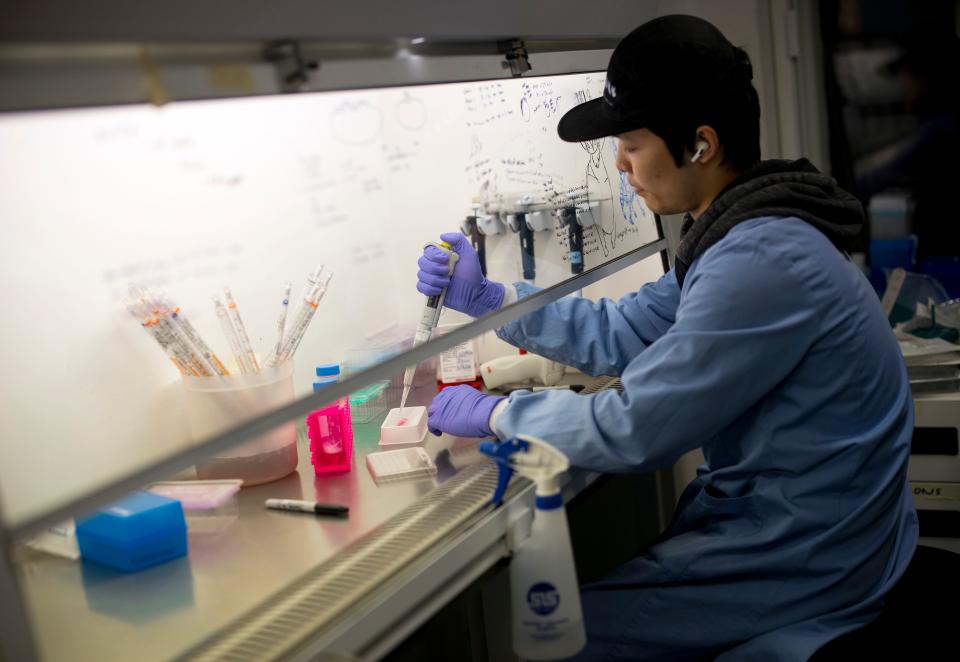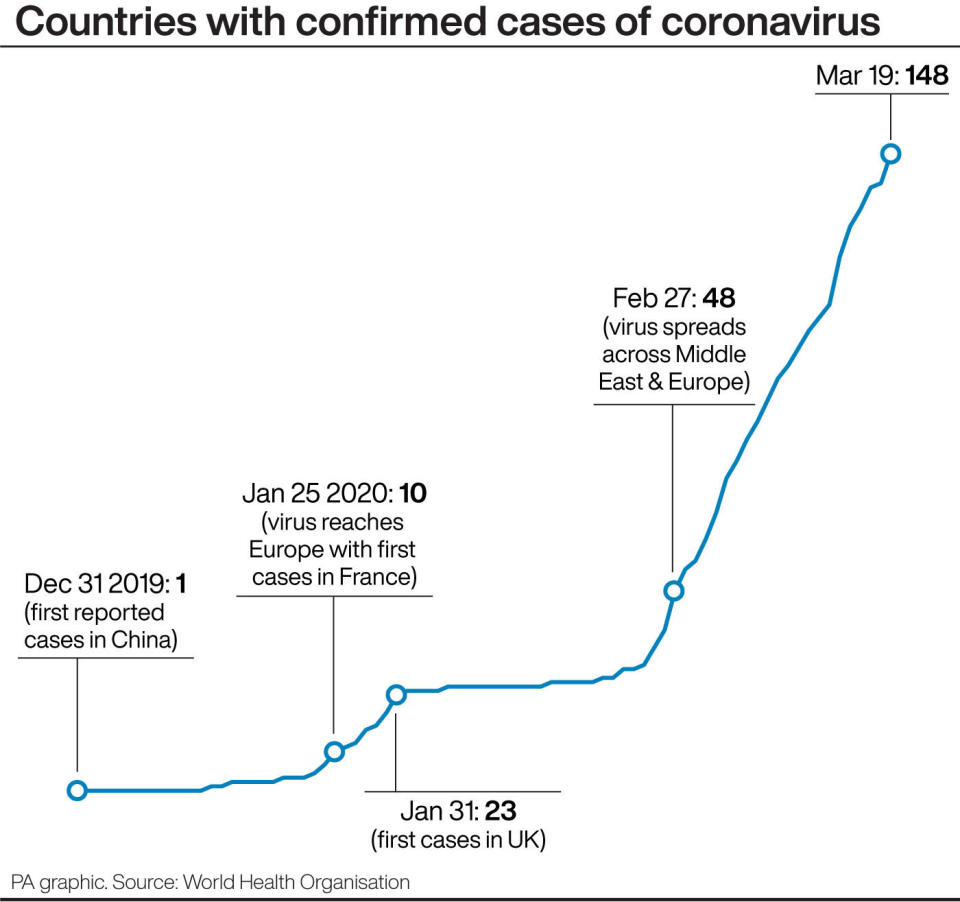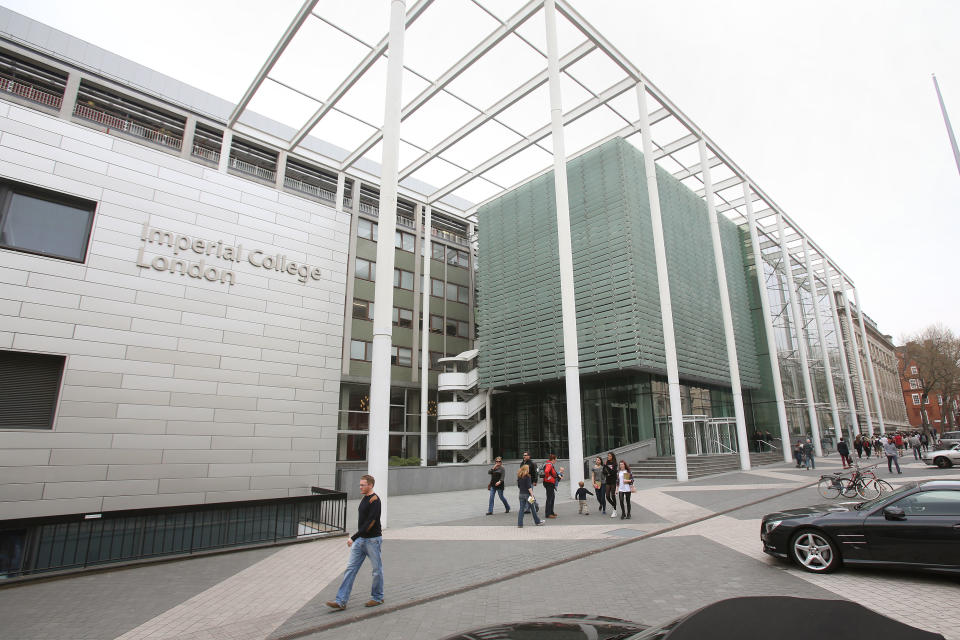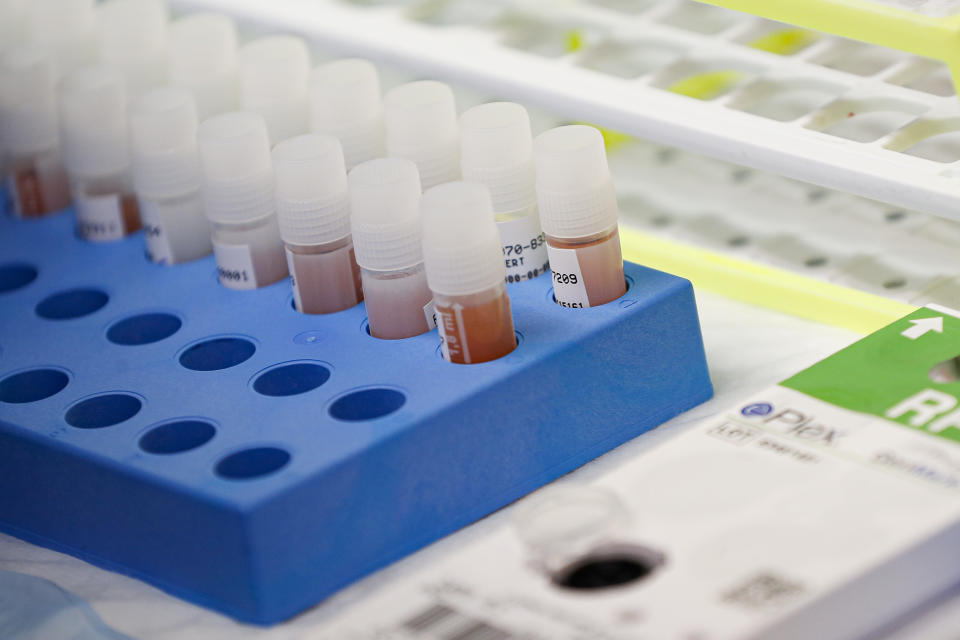Coronavirus: Professor warns COVID-19 vaccine may not be available until next year

An infectious diseases expert has warned a potential vaccine for coronavirus may not be available until next year “at the earliest”.
Professor Robin Shattock, from the Department of Infectious Disease at Imperial College London, told the BBC’s World at One that vaccines against coronavirus will not be made widely available for some time.
On Thursday, it was revealed that Public Health England (PHE) will begin animal trials at their laboratory in Porton Down, Salisbury next week
But when asked about how long of a human testing period would be needed, Shattock said the process could “not be short tracked”.

She said: “The first part of that testing is to check that it’s safe in humans in small numbers, and again induces the right sort of immune response.
Read more: Coronavirus: Matt Hancock says 1.4 million 'at risk' people to receive NHS guidelines
“That will take, even if we do things very quickly, two to three months. The next stage would be to ramp it up and start looking whether the vaccine actually can prevent infection in the wider community.

“You need to produce the data to show that a vaccine works and how well it works before you can then get a licence to then sell that as a product.
Latest coronavirus news, updates and advice
Live: Follow all the latest updates from the UK and around the world
Fact-checker: The number of COVID-19 cases in your local area
Explained: Symptoms, latest advice and how it compares to the flu
“So, globally, vaccines are not going to be made widely available, at the earliest, until next year and it may be later if its a global solution requiring manufacturing.”

This week, it was announced the UK is “very close” to developing an antibodies test that will determine whether someone has had coronavirus and is now immune to the disease.
The government's current chief scientific adviser, Sir Patrick Vallance, said Public Health England's (PHE) work on the antibody test is "progressing very fast".
Read more: UK ‘very close to breakthrough coronavirus immunity test’
On Friday, it was confirmed that a further 39 people died from COVID-19 in England - bringing the UK death toll to 177.
Meanwhile in the US, San Diego based Inovio Pharmaceuticals have used DNA advances to develop a jab called INO-4800, which it plans to test on humans within the next few months.

If successful, larger trials could be carried out in China by the end of the year, the company claims.
Read more: Coronavirus: the vaccines under development
“Once China had provided the DNA sequence of this virus, we were able to put it through our lab's computer technology and design a vaccine within three hours,” Kate Broderick from Inovio previously told the BBC.

 Yahoo Finance
Yahoo Finance 
